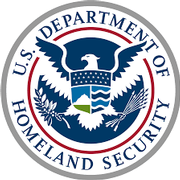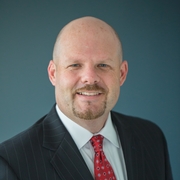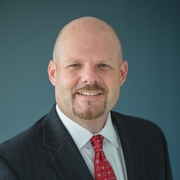
Last spring, I drafted a blog advocating for Congress to approve a long-term authorization bill for the U.S. Department of Homeland Security’s Chemical Facility Anti-Terrorism Standards (CFATS) that is set to expire January 19, 2019. The impetus for the piece was for Congress not to wait until the very end of the year when the midterm elections could politicize what is a bipartisan legislative measure. Unfortunately, that very scenario is now taking place, but successful approval of a long-term reauthorization bill is still possible with your help.

The U.S. Environmental Protection Agency (EPA) recently published the final rule on TSCA User Fees and officially began collecting the new fees for TSCA activities on October 1. NACD has been closely involved in the development of the rule. We submitted our initial comments in August of 2016 and then sent more extensive comments in February 2018 based on EPA’s proposed rule.

On the heels of an NACD economic analysis showing that approximately $5 billion worth of the chemicals U.S. chemical distributors import will be impacted by the China Section 301 List 3 tariffs, most of those tariffs went into effect earlier this week.

Hurricane season is certainly upon us. Just as the Gulf Coast recovers from Tropical Storm Gordon, the East Coast is preparing for Hurricane Florence, which is expected to make landfall within the next day or so. While Florence may be the first hurricane to hit the mainland United States in what has been a relatively quiet hurricane season until now, we remember all too well the enormous damage done by Harvey, Irma, and Maria last year. September is historically the most active month for hurricanes, and as the East Coast braces for Hurricane Florence, it is as vital as ever to be prepared in case disaster strikes.

The importance and pervasiveness of the trucking industry is indisputable, responsible for moving 75 percent of all freight. It is an essential pillar of our economy, necessary to every business from tiny local burger joints to doctors’ offices to the massive Walmarts and Costcos of the country, as well as to industries like chemical distributors, who delivered 30.7 million tons of product over 415.7 million miles last year. Unfortunately, our nation is currently experiencing the worst truck driver shortage in history.

Since President Trump came to office in 2017, Washington has seen an incredible amount of deregulatory efforts within the executive branch. The administration has been working hard to reduce the regulatory burden on businesses through various reforms across the federal government. And it has made tremendous progress. However, there is one aspect of the regulatory regime that I believe has been overlooked: enforcement.

Over the last two months, the association has undertaken an aggressive grassroots campaign to educate Members of Congress on the need to pass a long-term reauthorization of the Chemical Facility Anti-Terrorism Standards program before it expires on January 19, 2019.

Last year, we experienced one of the most destructive hurricane seasons in recent memory. The extensive damage caused by Harvey in Texas, Irma in Florida, and Maria in Puerto Rico continue to impact communities to this day, as many still haven’t fully recovered economically from the devastation of these storms. As we head into the summer and with the official start of hurricane season on June 1, now is the time to update your hurricane preparedness plans and review resources to ensure you are ready in the event a storm makes landfall in your area this year.

Our members know transportation. They do it every day, distributing the chemicals we all depend on for life in the 21st century. That’s why National Transportation Week is a big one here at NACD – simply put, it’s what we do, and we do it safely and efficiently.

In early March, the U.S. Trade Representative (USTR) released a proposed list of 1,300 products that would be subject to an additional 25 percent tariff duty rate when imported from China. As importers of chemical products from China, many NACD members have told us about the impact the tariffs will have on them if implemented. These tariffs, commonly known as the Section 301 China tariffs, would result in an overall $50 billion price tag that will be passed directly on to the U.S. consumer in the form of higher product prices.